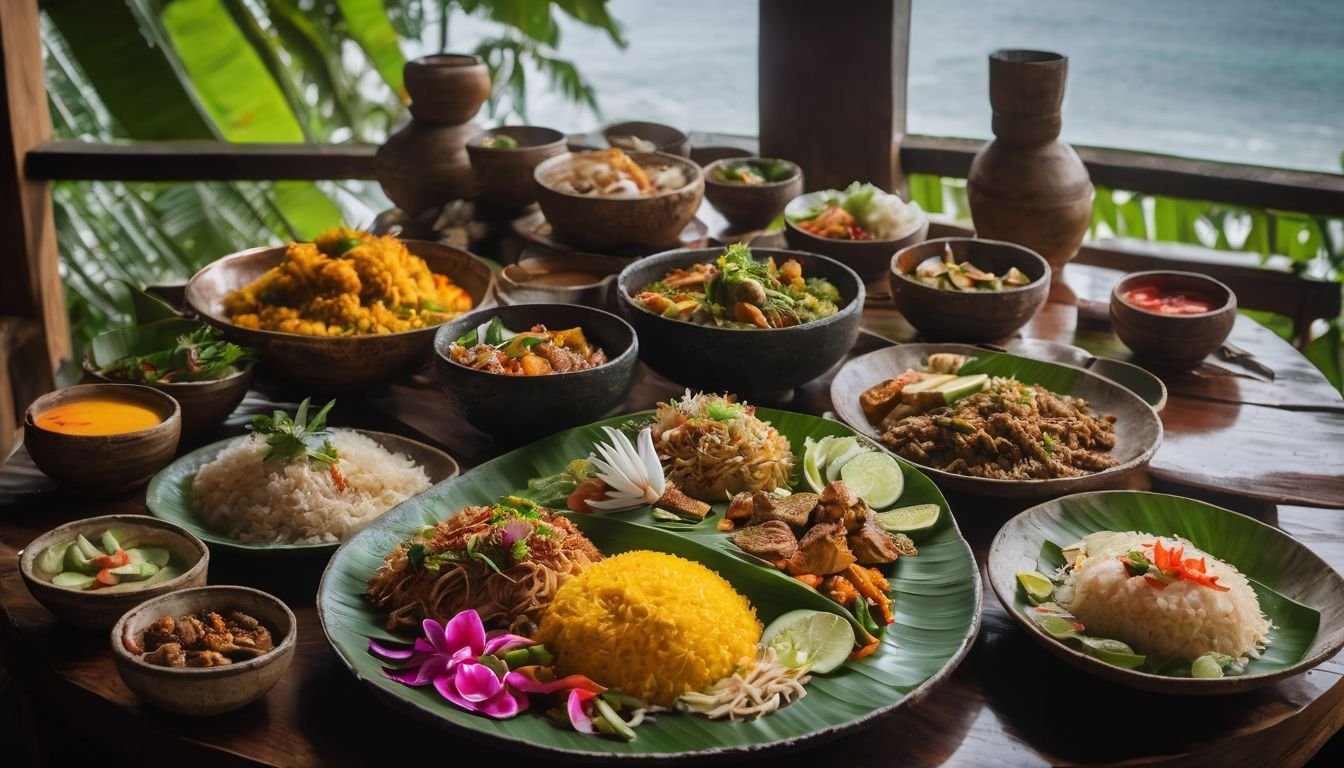Bali, a tropical paradise in Indonesia, is known for its immaculate beaches, breathtaking landscapes, and vibrant culture. From its crystal-clear waters and lush rice terraces to its eclectic street markets and ancient temples, Bali captivates visitors with its magnetic charm and diverse attractions, making it the perfect destination for those seeking a mix of adventure and relaxation.
Beyond its stunning attractions, Bali’s culinary landscape is not to be missed. With abundant farm fields and vast seas, Bali’s cuisine emphasizes the use of fresh ingredients and boasts an intricate blend of flavors and textures. Moreover, gastronomy in Bali also has profound significance in communities and religions wherein food is utilized to worship and respect the gods and deities. Balinese food offers multifarious experiences, from traditional dishes rich in history to modern recipes that excite the palate.
Related articles: Bali 101: What to Do and Where to Go, Top 10 Best Bali Beaches
Traditional Bali Cuisine
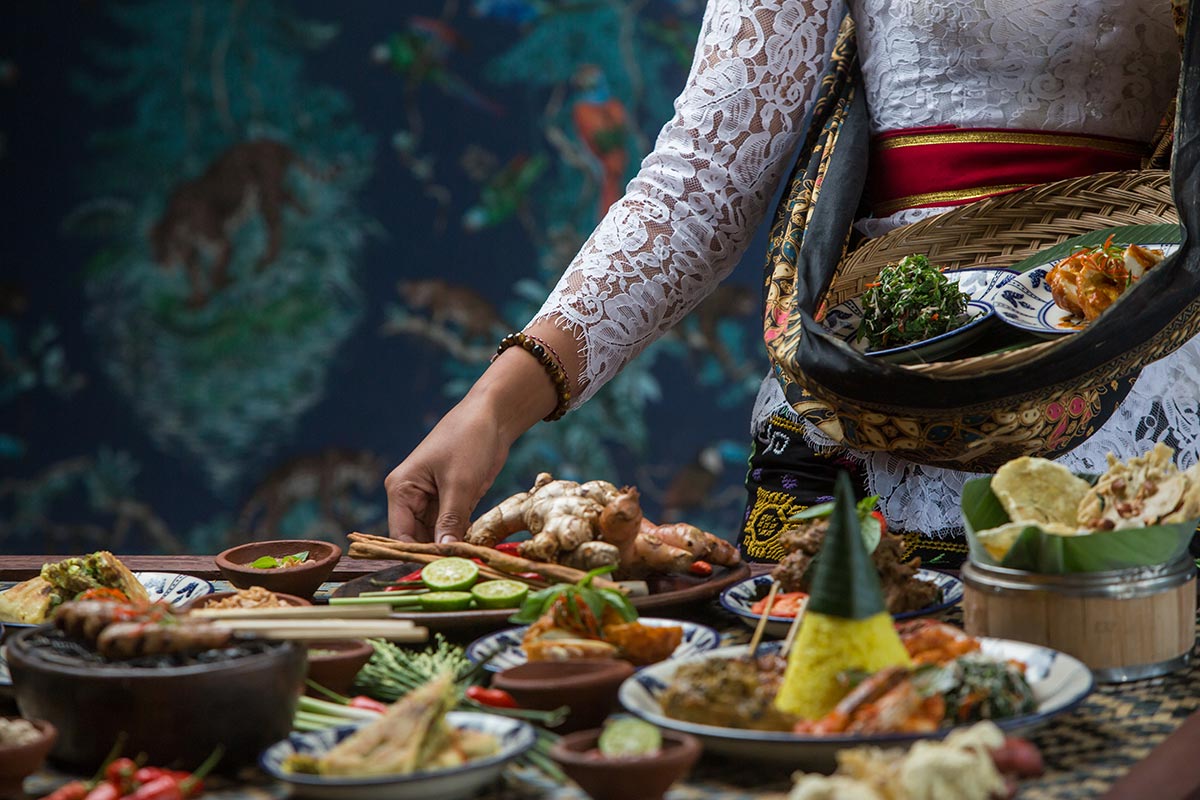
Balinese cuisine highlights local traditions and age-old practices. Timeless family recipes commonly passed down through generations tell stories of the island’s vibrant history, with some of Bali’s dishes tracing back to the Majapahit era in 1343. Many ancient cooking and preparation methods have stood the test of time and are still widely used today.
Balinese cuisine is also known for spice mixes like base genep, a spicy paste used as a base for different local dishes. Ingredients like shallots, turmeric, galangal, ginger, and bay leaves are also commonly used. The local culinary scene is also known for its simplicity and resourcefulness, wherein every part of a plant, including the fruit, leaves, trunks, branches, and flowers, is used to create various dishes.
When visiting Bali, it is a must to try local favorites like chicken satay (skewered meat), betutu (spiced meat dish), lawar (minced meat dish), laklak (traditional pancake), pisang goreng (banana fritters), pepes ikan (fish in banana leaves), and sambal matah (Balinese raw sambal). And, of course, no Bali trip is complete without sampling Babi guling, a succulent roasted pig dish stuffed with spices and vegetables.
The island’s thriving culinary setting includes a vast array of high-end restaurants with renowned chefs, modern cafes, authentic family-owned eateries, and no-frills street food stalls. Cooking classes are also available on the island, allowing visitors to learn how to prepare exquisite Balinese dishes themselves. Wherever you go in Bali, there is undoubtedly a unique culinary gem worth trying.
Related articles: Top 10 Must Try Indonesian Food, 5 Most Romantic Restaurants in Bali
The Cultural Significance of Balinese Cuisine
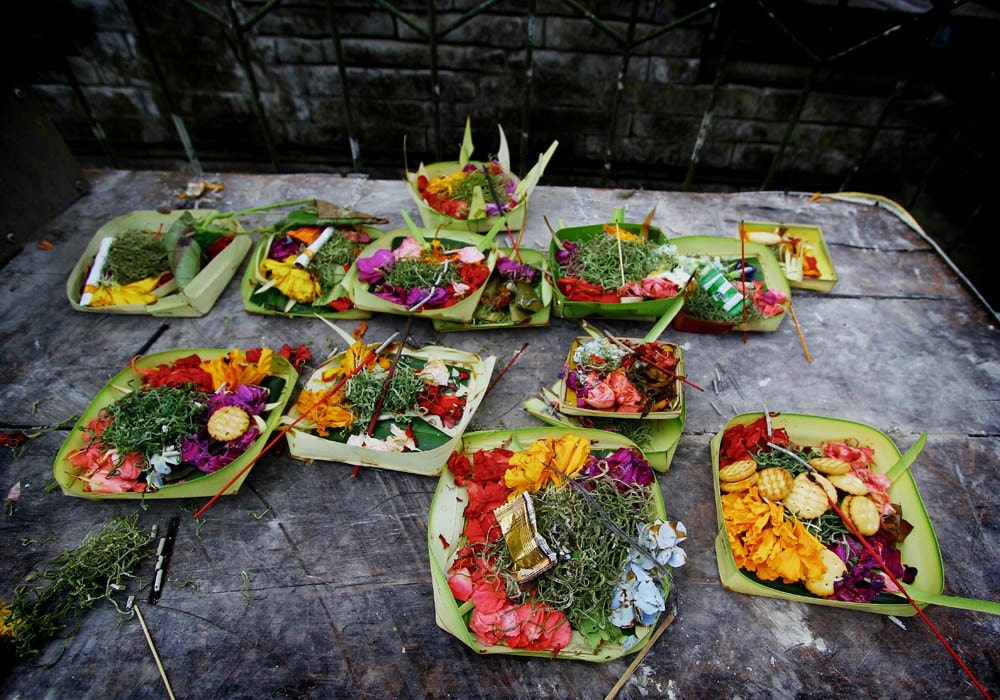
More than just for sustenance, Balinese cuisine is also entwined with the community’s rituals, festivals, and ceremonies. Food offerings are often integral to religious rites. During religious festivals such as Galungan and Kuningan, delicacies like satay and babi guling are commonly brought to temples as offerings.
Daily Hindu rituals like Canang Sari – an offering of flowers, food, and incense on a banana leaf – are also commonly practiced to appease spirits and represent harmony between humans and divine beings.
Beyond religious practices, food signifies harmony within a community. Balinese locals also commonly practice Rijsttafel (rice table). This ritual involves serving traditional Balinese delicacies around rice to allow easy sampling of every dish—a celebration of deep community ties and a reflection of their culture.
Related article: A Glimpse into the Beauty of Balinese Culture
Contemporary Culinary Innovations
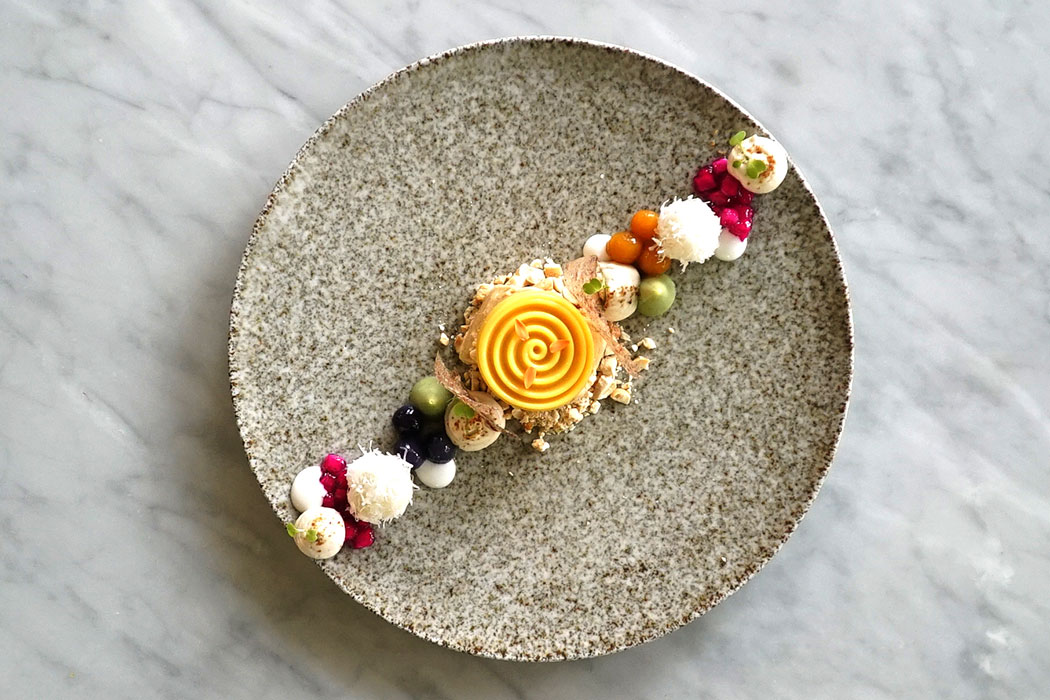
While many of Bali’s dishes are rooted in tradition, the island’s gastronomic scene slowly adapts to modern tastes, bridging the gap between conventional and contemporary culinary practices. The island is home to some of the best restaurants and talented chefs who elevate the local cuisine by combining traditional Balinese ingredients with modern culinary techniques to produce creative and innovative dishes.
Sustainable dining practices have also gained momentum in Bali, with many restaurants now offering organic, vegan, and plant-based choices. Restaurants also emphasize their farm-to-table practices to help support local farmers and promote sustainable and ethical agriculture practices.
Whether through the artistic synergy of flavors or the rise of organic farm-to-table options, Bali’s culinary landscape continually evolves – a testament to the community’s ability to blend tradition with innovation.
Experience Bali’s Delightful Cuisine
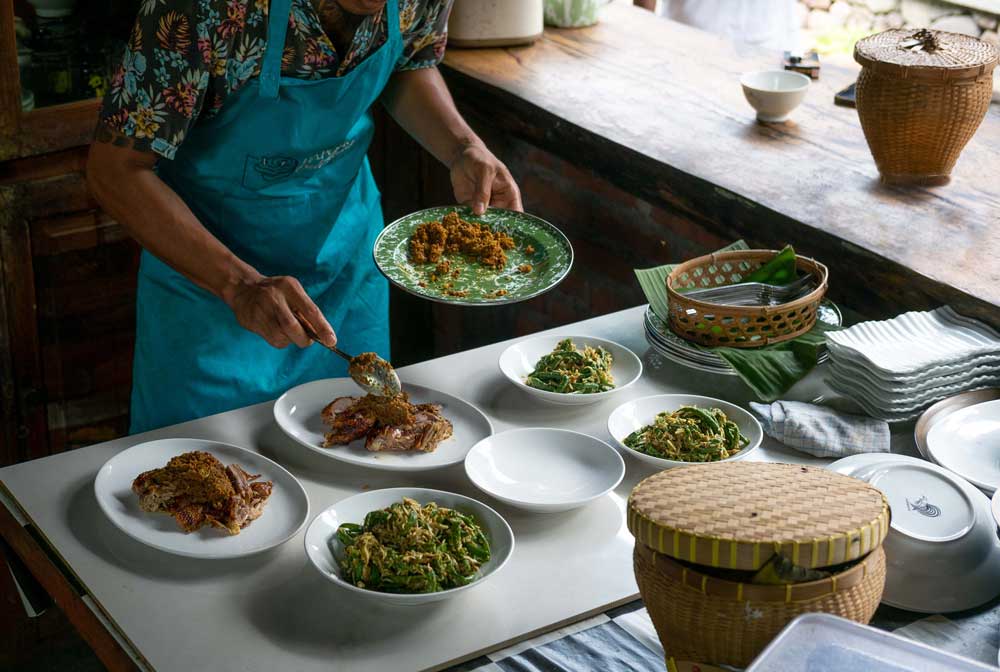
Bali’s culinary landscape is a unique journey that will take visitors on an exciting journey of local traditions and flavors that highlight the rich culture and colorful story of the Balinese people. Whether to sample innovative dishes or uncover the cultural significance of each feast, Bali promises a culinary experience you will not find elsewhere.
And for an immersive and authentic experience, The Private World‘s finest collection of luxury holiday villas in Bali offer personalized Balinese dining adventures tailored to your preferences. Savor the true essence of Bali in a private and luxurious setting by booking bespoke Balinese culinary adventures today.
Related articles: 6 Best Luxury Beachfront Villas to Rent in Bali, Get Deeper In-Love in Bali – A Collection of Bali’s Most Romantic Villas
–
Featured Image by Armland


